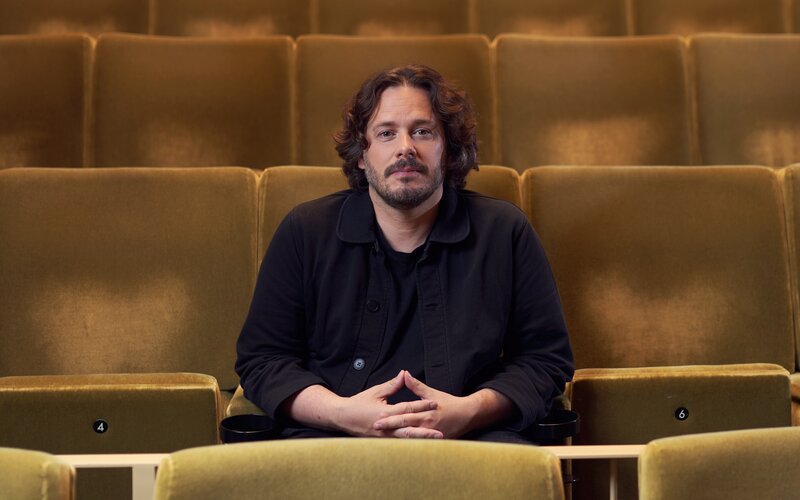
Pitching a film is a necessary skill to have for any budding filmmaker. Whether you’ve just written your first scene or are tying up your last, it’s good to be prepared for the pitching stage. After all, you want to get your film out into the real world the moment it’s ready.
If you’re wondering how to pitch a movie idea, you’re in the right place. Read on to find out everything you need to know about pitching a movie idea.
The pitching process
To get your film made, you need to pitch your movie to the right people. In most cases, filmmakers pitch to studio executives, producers, directors or agents to secure investment for their film.
The pitch will usually be a visual presentation alongside a film treatment (a document that outlines the whole concept of your film and fleshes out your approach to it) and the first 10 pages of your script. Your treatment should also give some detail on why you believe now is the right time for your film to be made and why you’ve chosen to approach this company/director/producer to sign on with you.
You don’t need to have a finished script to pitch your idea. You can pitch your movie at any stage of the project, but your idea should be fully fleshed out. It’s good to leave room in your grand plans for any feedback that may come from the pitch too.
“I don’t pitch as often as some might think, and I certainly don’t have it down to a science,” says Edgar Wright. But he does share a few top tips to bear in mind before you pitch your movie in his BBC Maestro course. Let’s dive into a few of them.

How to pitch your movie idea
Here are some of the things to consider when it comes to pitching your movie idea.
Make sure you believe in your project
Whether this is your first film or your fifth, you need to be sure this is a film that’s worth being made.
For many filmmakers, new ideas and new stories crop into their minds all the time. You could be developing one idea and you realise it isn’t worth pursuing or another that you’re so hungry to create that it becomes all-consuming.
One nugget of advice from Edgar is to make sure that if you’re going to pitch your movie idea, you really think it’s a film worth being made. “It’s never easy asking for money,” says Edgar Wright in his online filmmaking course. “So, make sure the project you want to make is one you really want to believe in.”
Your charisma, passion and commitment to your film should be obvious the second you meet your movie pitch audience. “Make it clear to them that you know what you’re doing, and this project has to get made,” says Edgar Wright. “People will be more willing to give you money if you can tell them the project is one you can put every ounce of passion into.”
Keep your pitch succinct
It goes without saying that time is incredibly valuable in pitching. You don’t want to waste your audience’s time or take them down an endless rabbit hole of ideas and cause confusion. So, making the effort to prepare what you want to say and how you want to say is important.
Sometimes people will pitch and take you too far into the world (of their film) and pitch every single idea they’ve ever come up with. The more streamlined you can be in conveying your ideas and how you plan to pull them off, the better.
Edgar Wright
Without diving into the details, explain the premise of the movie and the plot. You don’t need to cover every turn in the story here – just the ones that propel the story forward. Where does your story begin? What happens to your protagonist? And how do they overcome their antagonist? And what’s going to hook viewers (and therefore investors) in your film?
For example, a hook for Edgar’s Shaun of the Dead might be – what if a directionless salesman and his lazy roommate suddenly had to singlehandedly deal with a zombie apocalypse? Outlining these should give your audience a good idea of what to expect.
It’s also worth describing some of the key characters – their attributes and their arcs (how their character progresses over the course of the story), how they are relatable and what about them will excite viewers. If you need help refining these, you can take a look at our free character bio template. If there’s anything that stands out in your story or makes it particularly special, here’s where you mention it.
Reference other films that have inspired you
A pitch is a perfect place to show off a little bit about your own love of film. If there’s a film that’s inspired yours, it’s great to mention it in your pitch. If none come to mind, take some time to reflect on your story and vision and see if it draws any correlations with films or television series you’ve seen before. This will give the directors and producers in your audience an understanding of who you are as a filmmaker.
Avoid mentioning a film that was unsuccessful. “You want to find a way to refer to other movies that are acclaimed or huge hits,” says Edgar Wright. “I often find when you mention a bunch of films that weren’t hits, you can see the studio executive in his or her head saying ‘flop… flop… flop… avoid…’ as you list them off.”
If you’re trying to convince these people to give you money for your brilliant film idea, you don’t want to sway their judgement of you as a filmmaker (i.e someone who is inspired by box office bombs). If you have been inspired by unsuccessful films, “just keep that close to your chest,” advises Edgar Wright.
Take a look more of Edgar’s advice below.
Remember that you’re not only pitching your movie but yourself too. So be sure that you’re showing off your own passion, creativity and talent. If you believe in your idea enough, it will shine through at every stage of your pitch. If you want to dive into the world of filmmaking, you can learn more with Edgar Wright’s BBC Maestro course on Filmmaking.

Give the gift of knowledge
Surprise a special someone with a year's access to BBC Maestro or gift them a single course.



